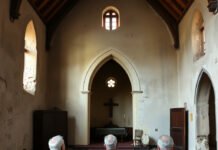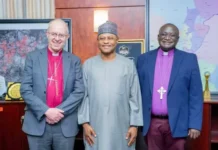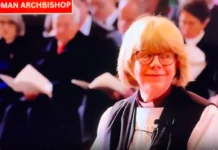One of the many unhappy consequences of ‘Lockdown’ was the postponement of wedding ceremonies.
Pre-covid the Church of England was conducting around 31,000 weddings and services of prayer and dedication a year.
Countrywide in that year in England there were approximately 208,000 marriages and civil partnerships, of which about 7,500 were of same-sex couples[1].
This means that, in 2019, roughly 15.5% of heterosexual marriages were contracted or celebrated in the Church of England. This is probably about right because in that year only about 19% of marriages in England were conducted in religious ceremonies and not all of those would have been in the Church of England.
Assuming that same-sex couples would be as desirous of a religious ceremony to contract or bless their relationship as opposite-sex couples, that means that, had such a service been available in 2019, perhaps 1,300 couples would have sought such a blessing.
It is in fact likely that such a projected figure is too high for a number of reasons:
- The number of weddings and services of dedication the Church of England conducts, even without the Covid effect, is in consistent decline. Since 2012 it has fallen from 57,600 to 26,500 in 2021. That is to say, it falls on average, by over 5% a year.
- Those identifying as LGBTQ+ are approximately 50% less likely to also identify as Christian than their heterosexual counterparts. (It is said, however, that their confidence in the faith will be increased if their relationship is celebrated by the Church).
- The number of services of blessing is less than 10% of the total number of wedding and blessing services – many more people are drawn to church for a wedding than a blessing. (Doubtless it might be argued that there if there is no option of a wedding same-sex couples may be more likely to take-up the offer of a blessing than an opposite-sex couple (for at least some of whom there may be a previous divorce limiting their options in some parishes)).
- Some clergy, like the Archbishop of Canterbury, will decline to use the Prayers of Love and Faith, creating a hurdle to accessing a service of blessing.
If, however, just the first two potential reductions above were applied the figure of 1,300 couples would be reduced by:
- an initial 130 due to the passage of two years
- another 585 due to lower Christian adherence.
That would leave about 585 couples to seek a blessing before the effect of it not being a marriage and potentially not available are applied.
In summary, it might be reasonable to say that, after an initial “bulge” caused by those who have not, until now, had the chance to have their relationship blessed in their local parish church, the number of couples seeking such a service would perhaps be between 500 and 1,300 a year. That is not to diminish the significance of such services to the individuals concerned, each one of whom is precious in God’s sight, and would love to celebrate their special day with their families and friends.
There are, give or take, 12,500 parishes in the Church of England meaning that if this take-up rate of services of blessing is broadly right, each parish would see such a service only every 10 to 25 years. In reality, some, especially urban parishes would see a much higher frequency and others, particularly rural parishes, might well not see a service for many decades.
Those in favour of the prayers will point out that this proves the Prayers of Love and Faith furore is just a storm in a teacup, which cannot merit the opposition it has provoked.
But that analysis is surely incorrect – whatever injustice they perceive to exist – the bishops of the Church of England are not willingly accepting the murder, rape and torture of an unknown number of people, the implosion of the Anglican Communion, and the CofE tearing itself apart, after years of wrangling, and at least £1m spent,[2] for something that is trivial. After all, any number of issues adversely affect a few hundred people a year without the raising of an episcopal eyebrow. As well as this, the need to treat every individual as of infinite worth must cut in more than one direction.
What is clearly going on is that, contrary to all their protestations, the House of Bishops are sending a message to the country that the Church of England has changed its understanding on issues of human sexuality. And, to them at least, if that is the prize, the suffering of others, the rejection by the global church and the internal fragmentation is a price worth paying.
[1] It is necessary to adjust all government statistics in this area by approximately 5.5% to remove consideration of Wales. [2] Question 199



